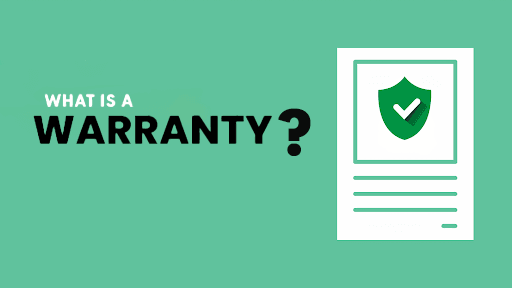
Consumer trust, reliability, and satisfaction are the foundations of a successful business today. From buying a new cell phone to investing in a car, consumers need protection for their purchases and investments.
To this end, a warranty offers a legal safeguard that protects consumers from fraud, deception, and other malpractices. In a marketplace, consumers demand a warranty from manufacturers to make informed decisions and protect their assets.
In this article, we will look into the basic understanding of warranty, its types, significance, and general terms and conditions.
Definition of a Warranty
A warranty is a legally binding assurance from a manufacturer to repair or replace the product if it fails to perform as advertised or meet the quality standards.
According to Investopedia, a warranty is a “guarantee or promise made by a manufacturer…regarding the condition of their product.” In addition, warranties specify terms and conditions of repairs, refunds, or exchanges.
This way, a warranty protects consumers by ensuring that the seller’s goods and services function as advertised.
Types of Warranties
There are different types of warranties, each unique in its own way. Understanding these different types of warranties is vital for consumer protection.
Here are the types of warranties that a consumer should know:
Implied Warranty:
An implied warranty is an assurance that is not written down or spoken according to Article 2 of the Uniform Commercial Code. An implied warranty automatically covers every sale unless a manufacturer explicitly disclaims it.
Additionally, there are two types of implied warranty: implied warranty of merchantability, which assures that a product is suitable for its intended use, and implied warranty of fitness, which guarantees that a product is fit for specific use as disclosed by the seller or the manufacturer.
Express Warranty:
Unlike an implied warranty, an express warranty is a manufacturer’s guarantee for a product in a written or oral form. Manufacturers print express warranty on a product’s packing or the purchase invoice.
According to the 1975 Magnuson-Moss Warranty Act, the seller must provide a written express warranty for any product that costs more than $15.
Full Warranty:
A full warranty is a written assurance from the manufacturer that they are obligated to repair or replace an entire product if it fails to meet quality standards or perform as advertised. This way, a full warranty provides maximum consumer protection.
According to the Federal Trade Commission, a full warranty for a product is considered if a warranty is free, covers any person who purchases the product, and does not limit the duration of the warranty.
Limited Warranty:
Unlike a full warranty, a limited warranty imposes provisions on warranty coverage, eligibility, and remedies.
Let’s take an example: A product has a three-year warranty. In this case, the manufacturer has limited the implied warranty to a specific period—or three years, as in the example. Likewise, the manufacturer can further restrict this warranty period to 90 days.
Extended Warranty:
Also known as a service agreement, an extended warranty offers optional warranty coverage for an extended period or scope of protection. This extended warranty usually comes with an additional cost.
AppleCare+ is an example of an extended warranty because Apple gives additional features to its consumers with AppleCare+, such as theft and loss coverage.
Significance of Warranty
Here is a list of several benefits that warranties offer:
- Warranties instill consumer confidence.
Warranties signal consumers about better quality and reliability, which allows manufacturers to create risk relief for consumers in their purchase decisions.
- Warranties ensure product quality.
By providing warranties, manufacturers motivate themselves to maintain high-quality standards and better product performance. This way, warranties develop satisfaction, trust, and loyalty among consumers for the manufacturers and their products.
- Warranties mitigate product risks.
According to the Magnuson-Moss Warranty Act of 1975, manufacturers must clearly disclose warranties to their consumers. In addition, the law prohibits manufacturers from deceptive practices, such as false advertising or misleading warranty information.
This way, warranties guarantee remedies to the consumers, mitigating the risk of a faulty or substandard product.
- Warranties offer a competitive advantage.
Manufacturers get a competitive edge in the marketplace when they offer generous warranties to their consumers.
Thus, a robust warranty policy differentiates a manufacturer from its competitors, attracting consumers through reliability and after-sales support.
General Terms and Conditions of Warranties
General terms and conditions are associated with each warranty. To reduce warranty risks, manufacturers introduce terms and conditions in their warranties, which govern their coverage.
Here are some key terms and conditions associated with each warranty:
Duration
Duration is the period during which manufacturers are obliged to provide warranty coverage. The standard warranty duration for all goods and services is one year from the date of purchase.
A consumer must note the warranty duration of a product before making the purchase.
Coverage
Coverage of a warranty defines different defects, damages, and malfunctions that make a product eligible for a repair, replacement, or refund.
For example, Toyota warranty coverage includes a bumper-to-bumper warranty package, which covers material or manufacturing defects that originated at the factory.
A consumer must review warranty coverage before making a purchase.
Exclusion
Exclusions are limitations of a warranty. Warranty exclusion restricts certain defects from coverage. For example, a computer warranty usually excludes burn or physical damages.
A consumer must pay attention to the exclusionary fine print of a warranty.
Remedies
Remedies define manufacturers’ responsibility in case of a warranty claim. Remedies clarify whether the defective product should be repaired, replaced, or refunded, depending on the problem and the terms of the warranty.
Conclusion
Warranties are essential for consumers, as they legally safeguard purchases, fostering trust, reliability, and satisfaction in consumer transactions.
By understanding different types of warranties and their terms and conditions, consumers can have peace of mind, knowing they are making informed decisions and protecting their investments.
As consumers, we must familiarize ourselves with a basic understanding of a warranty to exercise and protect our rights. By doing so, we can make manufacturers accountable for upholding their obligations.
